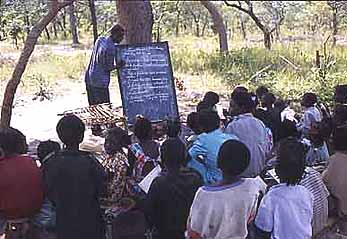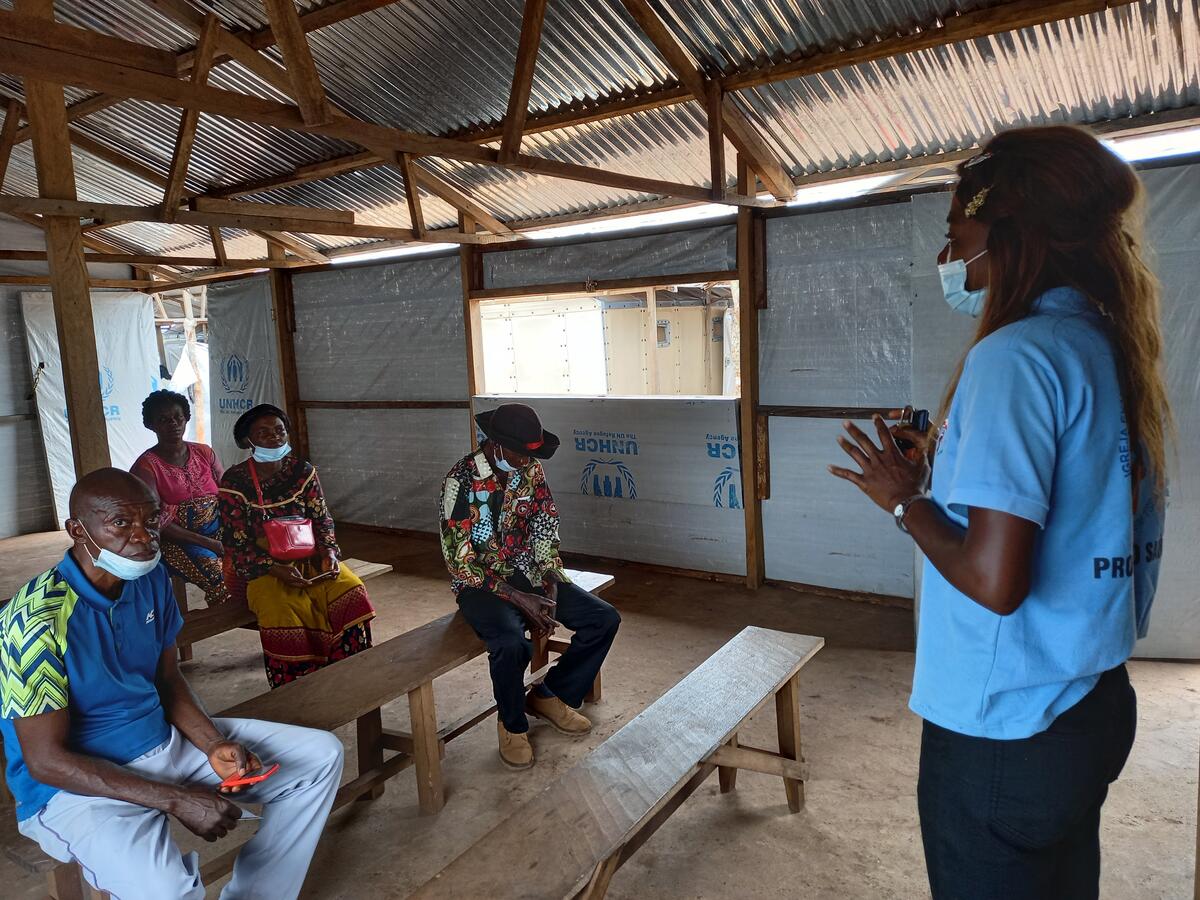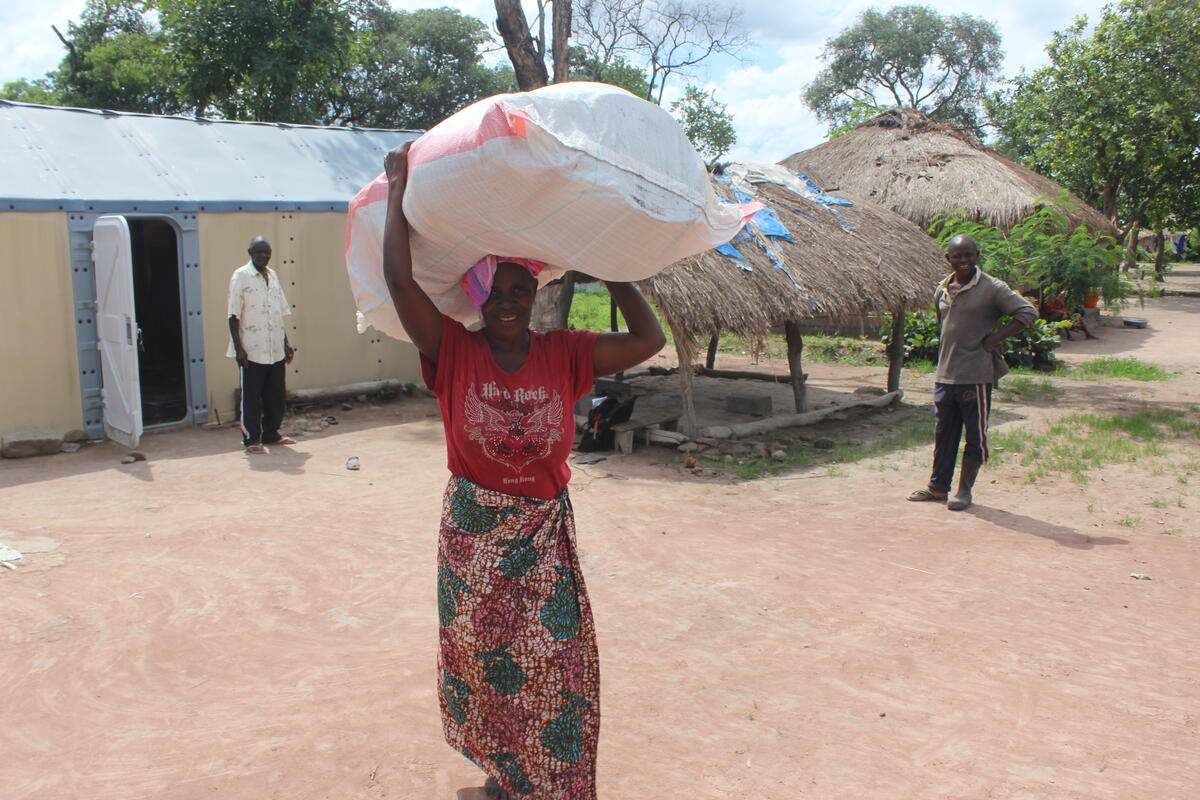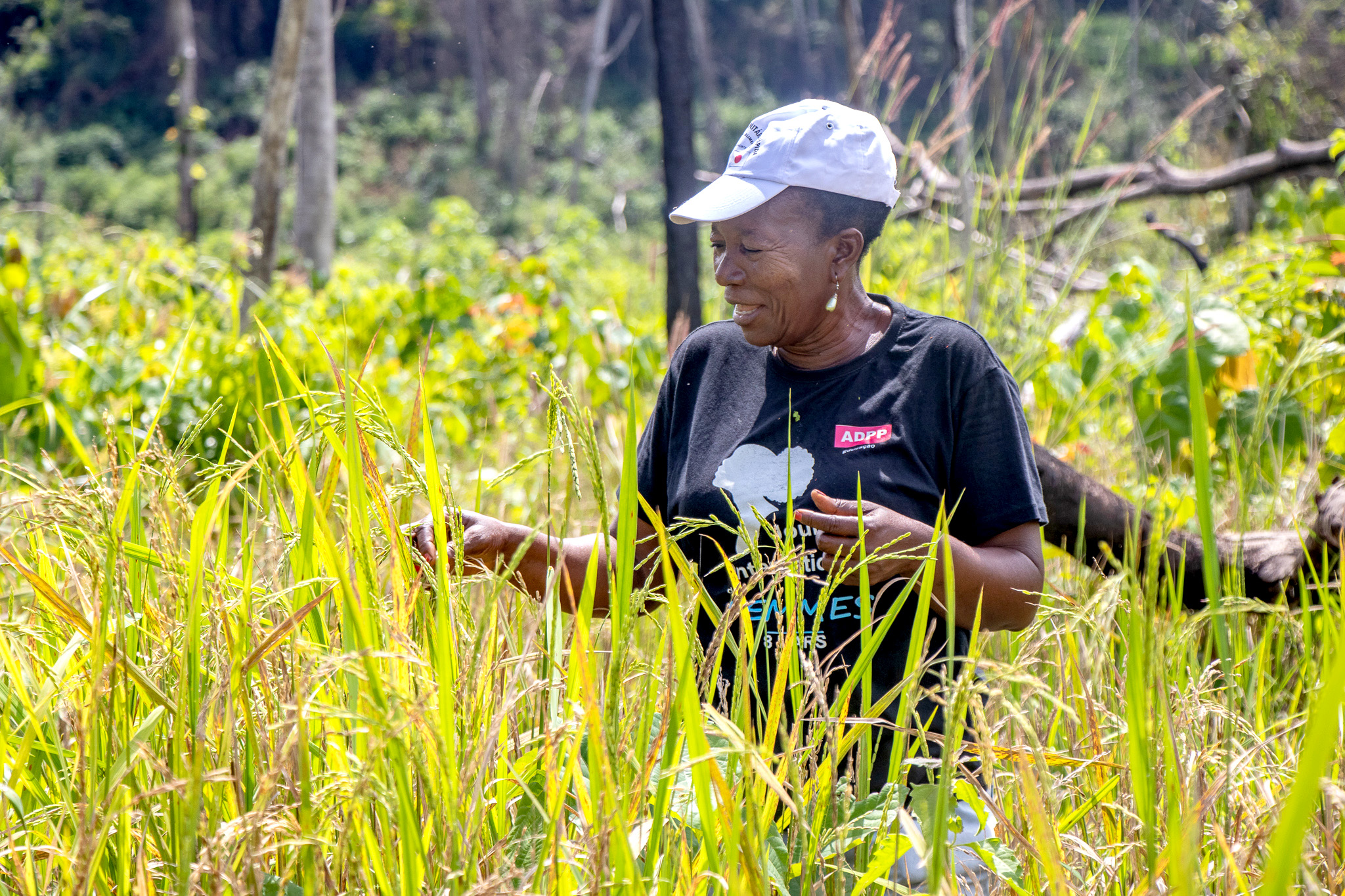Thousands of Angolan refugees in Zambia wait for resettlement as camps reach capacity
Thousands of Angolan refugees in Zambia wait for resettlement as camps reach capacity

Refugee school at the Nangweshi Camp in western Zambia.
LUSAKA, Zambia, Jan. 28 (UNHCR) - Some nine thousand Angolan refugees waiting to be relocated remain stranded in transit facilities outside the Nangweshi refugee camp in Zambia's Western Province, and more are on the way.
Following discussions last year with government authorities after the camp reached its maximum capacity of 15,000 people, the Zambian government elected last December is expected to announce a decision soon to open a new refugee camp that would accommodate the 9,000 refugees from Nangweshi and receive future Angolan refugees.
Due to the ongoing conflict in Angola, some 28,000 refugees from the Moxico and Cuando Cubango Provinces arrived in Zambia in 2001, with their numbers increasing sharply during the last two months of the year.
Zambia also received some 11,000 refugees from the Democratic Republic of the Congo last year, plus a small number of uprooted people from the Great Lakes region, making the country one of Southern Africa's largest refugee-hosting nations with a total of over 280,000 people. Some of the refugees have been in the camps for more than thirty years.
The refugee agency said their number will increase this year if the situations in Angola and the Democratic Republic of the Congo do not show signs of improvement. Angola has lived through 25 years of a civil war between the government and UNITA rebel forces, while the Democratic Republic of the Congo has foreign armies from four countries and various guerrilla groups on its territory fighting for control of the country's vast natural resources.
Despite support for the refugees from the Zambian government as well as from the donor community, the country faces serious problems as a result of the constantly increasing number of uprooted people on its territory.
The Kala camp in northern Zambia is nearing its maximum capacity of 25,000 refugees, and the creation of a new camp is quickly becoming a priority. The camp, situated near the border with the Democratic Republic of the Congo, was opened in 2000 and currently has 24,411 refugees, with more expected this year.
In Western Province, the area around the Nangweshi and Mayukwayukwa camps is flooded for several months every year during the rainy season, and although UNHCR obtained a boat last year, aid to the refugees drops significantly during the rainy season. The opening of a new camp on the dry eastern bank of the Zambezi River should resolve the problem.
Because of food shortages and the global increase in the number of refugees receiving food aid, all the refugees in Zambia have been placed on half rations during the past two weeks, a problem that should be resolved by mid-February once the stock is built up. Recorded cases of malnutrition have increased over the past year, especially among new arrivals and children.
UNHCR, together with the government of Zambia, plans to encourage donors to focus more on assistance to refugee-hosting communities in areas such as agriculture, health, sanitation and roads.
As part of an active search for durable solutions, the agency is hoping that some of the refugees that have been in the camps for numerous years will be considered for naturalisation in 2002. In a bid to collect demographic data and identify refugees who may be eligible for naturalisation, a global registration review is scheduled to begin next month for all camp-based refugees. Last year UNHCR registered 5,000 urban refugees in Zambia and furnished them with identity cards to facilitate their local integration in an urban setting.








